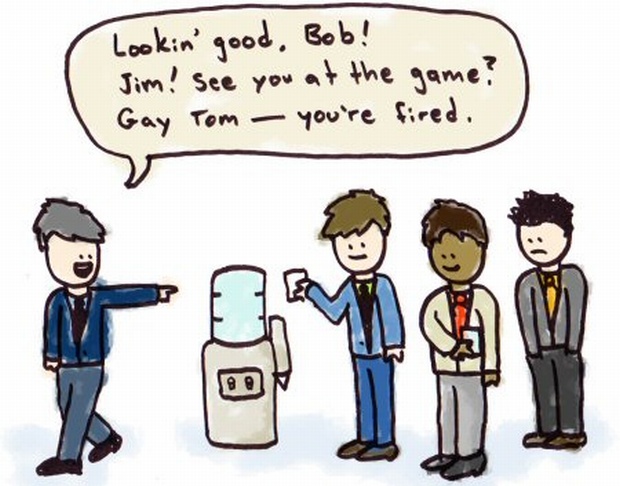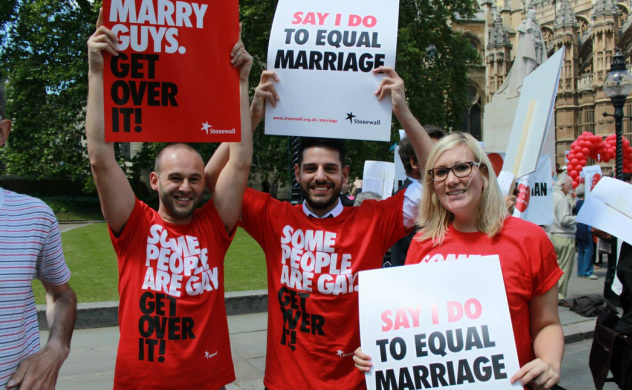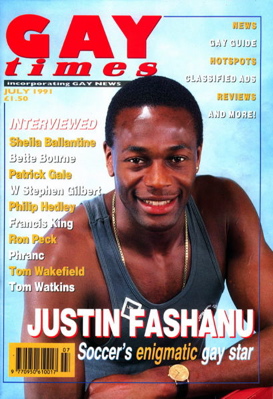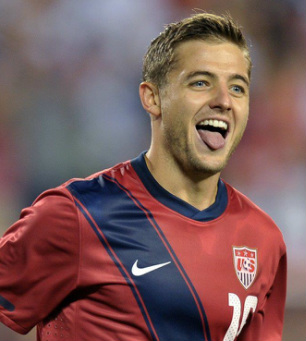I turned 32 a couple of months ago. I've been out for 11 years now and with each year I become more and more comfortable in my own skin. I'm not ashamed to be gay, in fact I'm happy to be gay. I've always said to my straight friends that being gay is no different to being straight and that the only difference is that gay people fancy people of the same sex while straight people go for the opposite sex. This week I realised I was wrong. Being gay is very different to being straight.
Since coming out I've had seven different jobs (I wasn't sacked from any before you start jumping to conclusions - I'm just ambitious!) and in each one I experienced the expected nerves at interview, not wanting to seem too annoyingly keen or too laid back. I went through the awkward first day in each job, instantly forgetting everyone's name as soon as it left their mouths, not certain how to answer the phone and never too sure how many cups of tea was deemed reasonable to drink in one day. Everyone experiences these cringey but unavoidable things in their new job though so you just ride it out and deal with it, becoming more and more comfortable each week and praying for another new starter so you're no longer the newest employee.
In each one of the seven jobs I've had since coming out I've experienced something far more anxiety-inducing than forgetting someone's name. It's often said that you never really stop coming out and that's definitely true in the place of work and in each new job I've had since coming out I've had various levels of anxiety around the fact I'm gay. I dreaded the inevitable question that would no doubt come in week one, maybe week two if my new colleagues weren't overtly nosy! "So have you got a girlfriend Wayne?"
When I look back on each of the jobs I've had since I started to identify as gay I can honestly say that not one of my bosses ever made me feel uncomfortable about my sexuality before or after they knew I wasn't straight. The fear I had about having to answer that question and to come out at work was partly due to my lack of confidence in myself and partly due to the fact I prejudged my colleagues - something I am quite embarrassed and ashamed of in hindsight.
No matter how cool each set of colleagues was about me being gay (and I've never experienced any hostility or homophobia in any job) it made absolutely no difference to how I felt when moving on to a new place of work with new people. The areas I have worked in (retail, private training, healthcare) are not overtly masculine arenas, in fact you could argue that they each have a fair representation of gay people - it's not as if I've been a premiership footballer or worked on an oil rig. When I look back at how I felt going in to each job I feel guilty. I feel guilty that without meeting the people I was to work with I had made assumptions that at least some of them would be uncomfortable with me being gay and in turn that would affect their attitude towards me. I guess it was the fear of being disliked for something I couldn't help.
I've always been aware that I possessed this somewhat irrational and somewhat logical fear - logical in the sense that as human beings we are programmed to protect ourselves from harm, whether it's physical or emotional. But it didn't matter how much I tried to talk myself out of expecting some kind of workplace homophobia, I always felt sick with anxiety about meeting new colleagues, especially straight males - after all, they'd all assume I fancied them and would not want to talk to me right? Such a strange view for me to have as I became good friends with many colleagues, including straight males, many of which became and remain friends.
I've thought about what each workplace could have done differently to make me feel more at ease when I started working with them; not that I'm blaming any of them for the fear and anxiety I felt, but employers do have a responsibility to make sure all of their staff feel comfortable at work. I've thought about what they could have done but I've always struggled to come up with anything - until now.
Last week I started working with Stonewall, the biggest British charity working for the rights of gay, lesbian and bisexual people. Contrary to popular belief not everyone who works at Stonewall is gay, lesbian or bisexual. About 75% are but the difference between starting work at Stonewall and any of my previous employers is that no one makes assumptions about your sexuality either way. Again, I'm not trying to criticise any employer that I have worked for previously, after all, most people are straight so an assumption that a new employee will also be straight will very often be proven right. The people who interviewed me for my job at Stonewall knew I was gay because I wrote about my coming out experiences and the RUComingOut website in my application so when I started on my first day I knew I didn't need to worry about them asking the girlfriend question. But what about my other new colleagues? Well none of them assumed anything about me. Some asked me if I had a partner during after work drinks but not one of them made an assumption about my sexuality, well not in a question directed right at me anyway!
So here's what I've learned in the last week. When straight (and gay) people assume everyone else is straight, it isn't meant as a form of oppression, a way of marginalising gay people, but it can inadvertently cause that. My previous employers weren't homophobic, they didn't set out to make me feel awkward or to worry. So what can employers do to make gay, lesbian and bisexual people feel more comfortable when starting work with them? Well they can do what Stonewall do - make no assumptions. Managers and staff need the right training to enable them to make staff feel welcome whatever their orientation.
"So Wayne, have you got a partner?"
One word changes. What's in a word? Girlfriend, partner, does it matter? Yes. To me it would have mattered. In that simple change of one word, the acknowledgement that I may be gay and that the person asking was cool with that, I would have felt more comfortable. I always knew I had issues with coming out (and to some extent being out) at work but never to the extent that I now know I did.
Some people reading this might not really see the point in what I'm saying. I spoke to my new housemate who has always worked in London and he told me that he has never felt that anxiety about starting a new job. He's gay. He says that he's always worked with other gay people and that it's never been an issue for him. But not everyone works in London, or New York, or Sydney. When I came out at 21 my boss was gay and I think seeing someone in a position of authority whom everyone seemed to like made me feel hopeful that things might not be so bad if I came out. He definitely inspired me to take that step and I often wonder if I'd still be in the closet if he hadn't been my boss! You spend so much time at work it really does affect who you are and how you live your life - more than I ever thought it did. In the seven jobs I've had since then and previous to my role at Stonewall I have never worked with another gay, lesbian or bisexual colleague in my team. Well, not an out gay, lesbian or bisexual anyway. No wonder I had so many anxieties about coming out at work. In my experiences at work I was an anomaly, a minority.
In my new job I'm just me.
Wayne Dhesi
@WayneDavid81
For more on coming out at work read this feature by the BBC's Simon Wright




 RSS Feed
RSS Feed